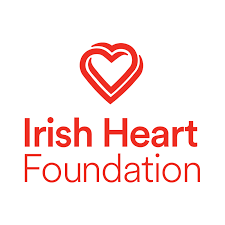

January is often a time to reset – to set up healthy habits that can make you feel good and to learn new skills. What better skill is there to pick up or refresh than one that could help to save a life.
Every year in Ireland almost 70% of cardiac arrests happen in the home. If you have been taught CPR (Cardiopulmonary Resuscitation) you are ten times more likely to respond appropriately in an emergency and you may be their best chance of survival.
What are the key steps in performing CPR?
- Check – Recognise that someone is having a cardiac arrest. The person will be unresponsive and not breathing or not breathing normally.
- Call – Contact the emergency services on 112 or 999. You should share the EIRCODE of where you are. Listen to call taker and follow their instructions.
- Compress – Push hard and fast in the centre of the chest at a speed of 100-120 compressions per minute and at a depth of two inches or 5cms. Check out how to perform compressions in our video here.
- Shock – Use an AED. Using an AED can sometimes lead to a higher chance of survival. It delivers a shock to the heart to allow it to resume its normal rhythm. If you are performing compressions, ask for help. Another person should get the nearest AED. An AED is very simple to use, you just need to listen to the voice prompts. Check out how to perform compressions in our video here.
According to the OHCAR 2022 Annual Report, bystander CPR was attempted in 84% of cases in 2022. Bystander CPR happens when someone who has witnessed or comes across a cardiac arrest steps in to provide CPR. This could be you, another member of the community, a medical professional, An Garda Siochana or others. Defibrillation was attempted in 896 cases in 2022, with 31% of those attempts made before Emergency Medical Services arrived.
